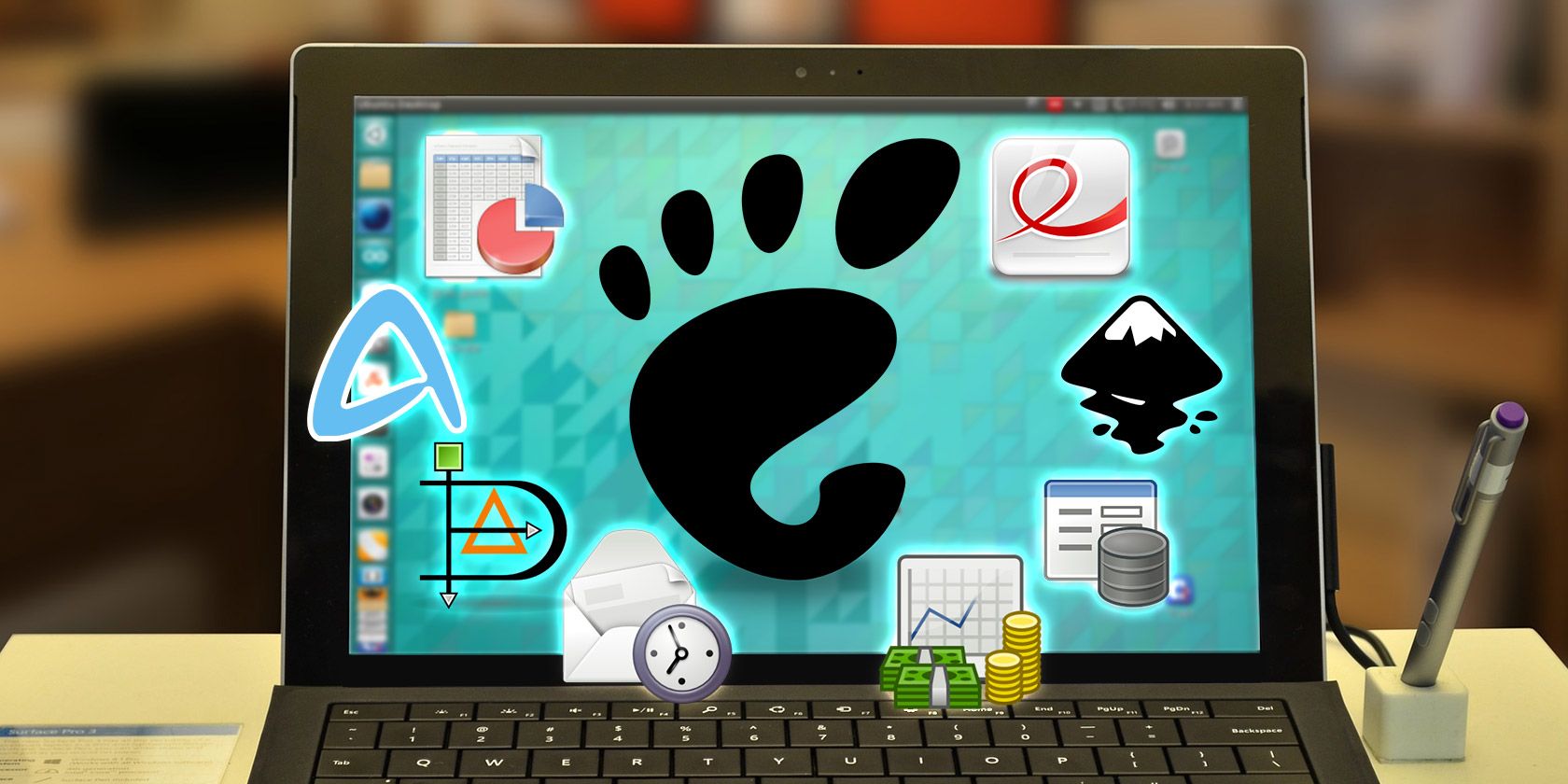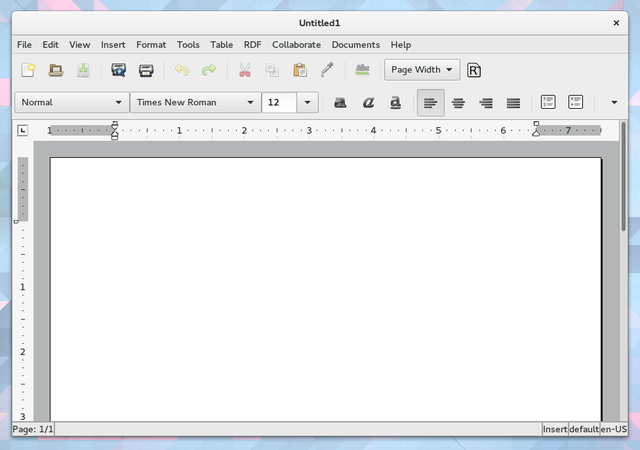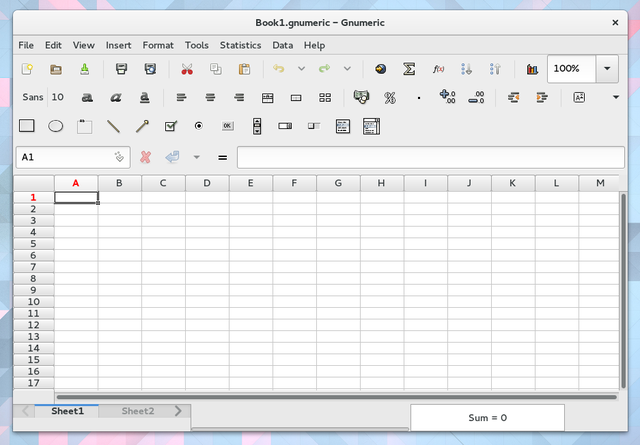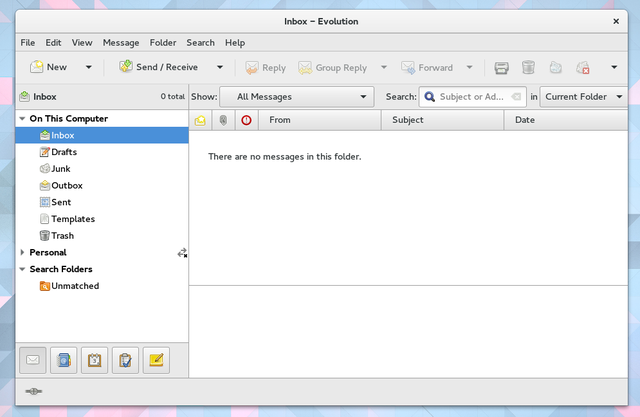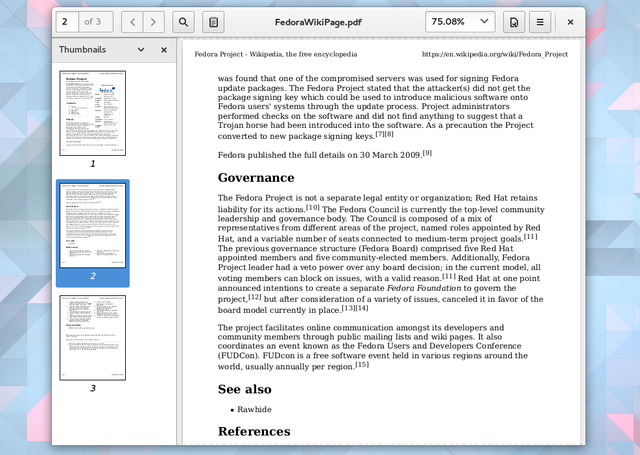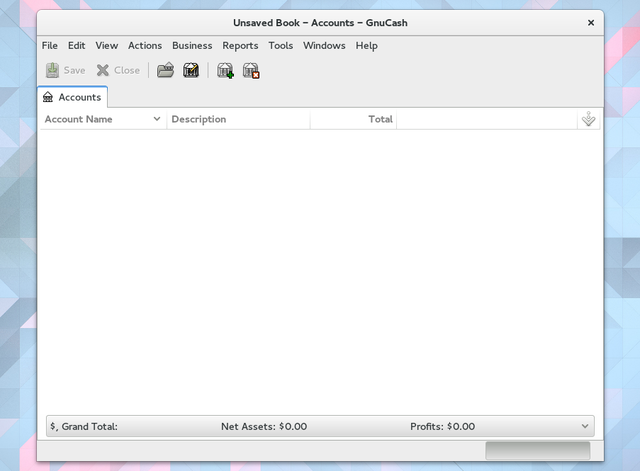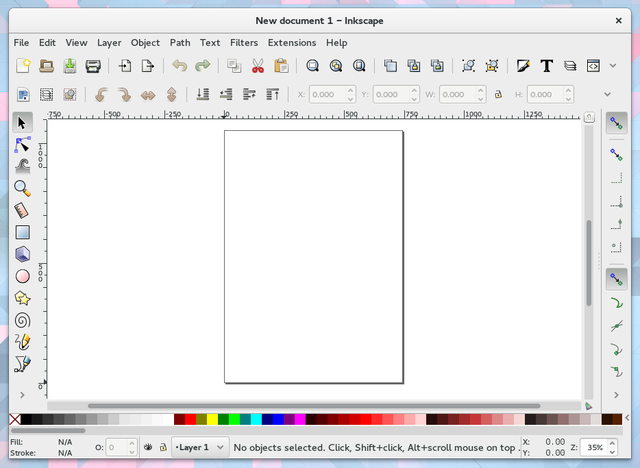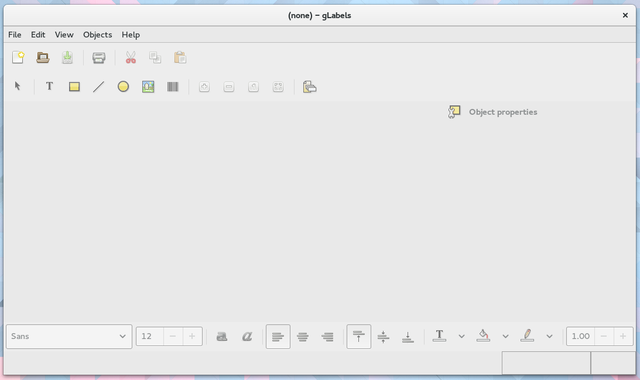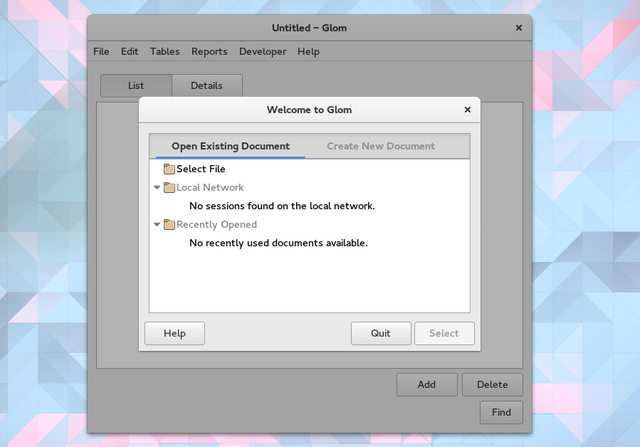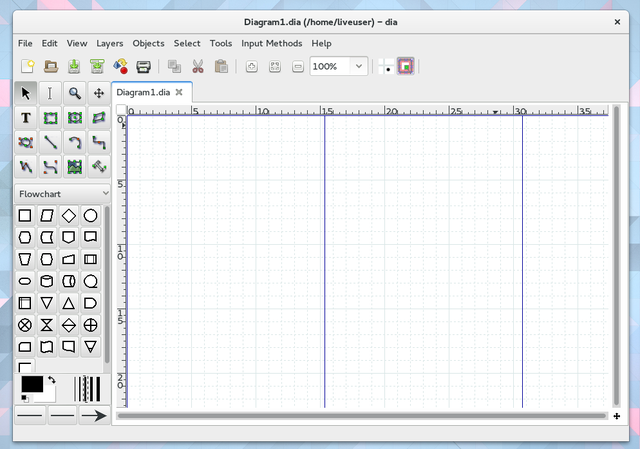GNOME is one of the most popular desktop environments for Linux, but it doesn't have its own office suite. Except it kind of does, and I'm not talking about LibreOffice.
GNOME Office isn't a term you see marketed heavily. Don't try searching for it in your package manager. You probably won't find anything.
That's because a formal GNOME Office suite never fully left the ground. These days the name lurks around on scattered About pages and a wiki site. The latter lists apps that the GNOME Project considers useful in an office environment.
These ten apps don't form a cohesive office suite, but they come close. Even if they're not branded as a single package, they're still likely to help you be productive from your Linux desktop. Here they are.
1. AbiWord
A word processor is the cornerstone of any office suite. Students and professionals alike often hit the point where it's time to type up a paper. If you're using GNOME, AbiWord is a great app for the job.
This lightweight alternative to LibreOffice Writer loads up in a fraction of the time. It has fewer options, but most of what you're likely to need is available. A standout feature is collaboration support. Think Google Docs, but from a desktop app. Two people can connect using AbiCollab or other services to edit the same document simultaneously.
The app defaults to its own ABW file format, but it can open and save files using Microsoft's DOC format too.
Replaces: Microsoft Word
Origin: 1998
Commercial platforms supported:Windows and Mac OS X
2. Gnumeric
Okay, that's enough writing. It's time to crunch some numbers. Gnumeric is the GNOME Office spreadsheet app. Like AbiWord, it's a speedy alternative to what you find in LibreOffice.
Gnumeric defaults to its own format, but it can open spreadsheets created by other apps. The interface is similar to AbiWord's though the icon theme makes it feel a tad more dated.
Fun fact: Gnumeric was created by Miguel de Icaza, one of GNOME's co-founders.
Replaces: Microsoft Excel
Origin: 2001
Commercial platforms supported:None
3. Evolution
Evolution is GNOME's default email client. This is the GNOME app for folks accustomed to Microsoft Outlook. Alongside email, you can manage contacts, a calendar, and a to-do list.
GNOME made the 3.0 transition years ago, but Evolution has yet to do the same. For that reason, Geary remains an alternative that you may want to check out instead.
Replaces: Microsoft Outlook
Origin: 2000
Commercial platforms supported:None
4. Evince
You may have been using Evince for years without even knowing its name. This PDF reader often comes pre-installed and usually shows up as Document Viewer.
The name says it all. Evince is for viewing documents. It can load PDF, PostScript, DjVu, TIFF, XPS, and DVI.
As for editing, you have a few basic annotation options: highlighting and writing notes. There isn't more than that, and like many GNOME app, that simplicity is by design.
Replaces: Adobe Acrobat Reader
Origin: 2005
Commercial platforms supported:Windows
5. GnuCash
Whether you enjoy managing money or view it as a necessary evil, it's an important part of managing your own work. You have to be sure there's enough money to do what's needed, and it's hard to file taxes if you don't know what you have.
GnuCash is open source accounting software. Use it to manage your income and expenses. You can craft a budget, generate reports, and manage loans. It's one of the most mature apps of its type on Linux.
Replaces: Intuit Quicken
Origin: 1998
Commercial platforms supported:Windows and Mac OS X
6. Inkscape
Inkscape creates and edits images that can change size without losing quality. The tool defaults to the SVG file format.
Vector graphics scale to fit various screen sizes, so they look good on old and new hardware alike. Inkscape is one of the most well-known tools for manipulating these images. If graphic design is a big part of how you earn dollars, this is a great app to have in your launcher.
Replaces: Adobe Illustrator
Origin: 2003
Commercial platforms supported:Windows and Mac OS X
7. gLabels
Handing out business cards is a part of the job. Linux users have an open source way to create those rectangular paper squares. gLabels is likely available in your package manager.
As the name suggests, gLabels is also great for making labels. You can make a type a name, add a barcode, and place stickers on the products you sell. The app is intended for use with laser/inkjet peel-off label and business card sheets.
Replaces:
Origin: 2001
Commercial platforms supported:None
8. Glom
Once you've stockpiled a bunch of data, a database can help you keep everything in order. Group information by name, date, numbers, Boolean, and whatever other category you can type into a field.
A business owner can use this tool to manage contacts or clients and the work they've done for each. Use it to organize whatever you like. But it may not be the tool for you if you have an existing database you want to migrate over.
Replaces: Microsoft Access
Origin: 2006
Commercial platforms supported: Windows
9. Dia
Dia is for creating diagrams. Think flowcharts, entity relationship diagrams, UML diagrams, network diagrams, and others. Dia can export to many formats including EPS, SVG, XFIG, WMF, PNG, JPEG, and VDX.
The developers have geared the app more towards casual use than professional, but that may be all you need in your home office.
Replaces: Microsoft Visio
Origin: 1998
Commercial platforms supported:Windows and Mac OS X
10. Ease [No Longer Available]
You might expect a presentation app to be on the list. You will be partially disappointed.
There's one available for GNOME, but it's in early development. Sadly, the project hasn't progressed much in six years. You can try out the existing version, but you'll probably need to build from source. Don't expect to see this one in your package manager.
Replaces: Microsoft PowerPoint
Origin: 2010
Commercial platforms supported:None
See Something You Like?
You don't need to use GNOME to use these office apps on your Linux desktop. None of them adhere to GNOME 3.x visual guidelines, so they fit right in on Unity, Mate, XFCE, and other open source desktops. Some, as you've seen, are also available on Windows and Mac OS X.
Personally, the Windows version of AbiWord was one of the gateway apps that led me to Linux. It hasn't changed much in the past decade (aside from the massive addition of collaboration support), but it remains a solid word processor.
What office apps do you use on your Linux desktop? Did you see an app on this list that you weren't aware of? What do you think of the state of open source office suites in general? Let's have a conversation.

